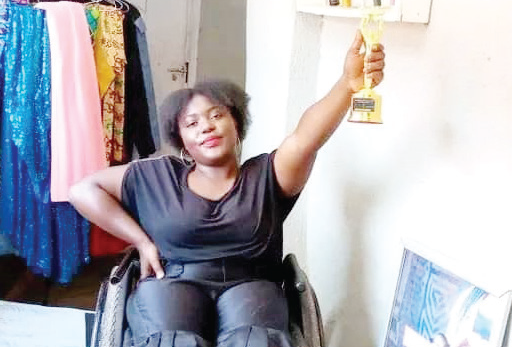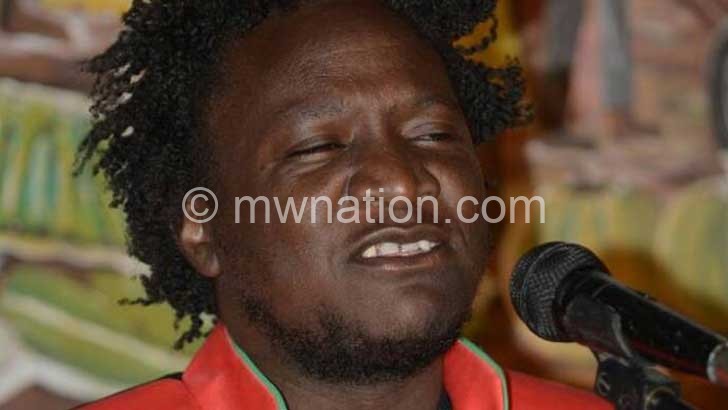LURE OF POLITICS: Artists abandon calling once elected MPs

Malawi is scheduled to hold its first tripartite elections in May 2014.
Although the official campaign period has not yet been launched, political parties are currently busy putting their houses in order.
Aspirants for the presidency, Parliament and councilors from various parts of the country have started coming out in the open to express their interest to contest.
Like in many previous elections, artists have not been spared.
This has been the trend, especially since the advent of political pluralism in the country.
During the past elections for instance, artists vied for parliamentary seats.
Some of them, such as Soldier Lucius Banda, Billy Kaunda and Dr Crowd, made it to Parliament while for others, things did not work out as they had anticipated.
Late Du Chisiza Junior was among people who made an outstanding impact in the run-up to the 1993 referendum when he staged Barefoot in the Heart before the play was banned in 1994.
But after the referendum, Chisiza joined the same party he had criticised when he agreed to take up the post of Minister for Sports, Youth and Culture in 1994.
However, despite joining politics, Chisiza enjoyed a large following until his death in 1999.
Kaunda is another musician who took up the role of a social commentator and critic, but gave up the noble task to serve the people.
Before becoming a legislator, Kaunda christened himself ‘Minister of the Poor’ because he represented the voiceless as evidenced in Alibe Mawu.
Later, Kaunda alluded to the book of Galatians in the Holy Bible to criticise Muluzi’s decision to stand for the third term as the country’s president which was against the Constitution.
Agalatiya Agalatiya Mwataya Chipangano
Nthawi yatha Mukukakamilabe chitukuko sakakamira
But when Kaunda finally got a parliamentary seat, his prowess in music began to decline.
Banda’s Cease Fire album, which is among his best, carries more songs that criticised the UDF government such as Kunyada Mudzinyada. It contains lyrics that seemed to warn government not to get too comfortable as things change just like seasons.
Kunyada mudzinyada koma osamaonjeza
Poti kuno ndikunja kuyanja lichero
Kunali mzungu uyu akadali wa youth ankangodyera nkhuku
Koma lero suyu watuwa
Banda warned the UDF government against repeating mistakes the previous government had made.
After Cease Fire, Banda left no stone unturned on his journey to produce 17 albums.
He contested for a Parliamentary seat in 2004 and was victorious.
But Banda’s career as a lawmaker was short-lived. He was arrested, tried and convicted for possessing a fake Malawi School Certificate of Education (MSCE) certificate.
Coming out of the turbulence that surrounded his life during that time, the Soldier released songs loaded with anger and frustration, especially in Pa mtengo wa kachere.
Tidzakumana, pamtengo wa kachere,
Pothela nkhani
Pamtengo wa kachere
Tidzaonana pa mtengo wa Kachere
Ngati si inu
Ndi ana anu
Paulo Reglus Neves Freire, a Brazilian educator and philosopher, argued in Pedagogy of the Oppressed that if the oppressed takes up the position of the bourgeois, he becomes the oppressor. Do Freire’s sentiments reflect the journey most artists travel when they decide to join politics?
Looking closely at most artists who double as social commentators and politicians, one notices that their criticism depends on whether they are in politics or not.
If they are not in politics, they tend to be too vocal in their criticism of politicians, only to disappear into oblivion when they become members of Parliament or Cabinet ministers.
Senior lecturer in music in the Department of Fine and Performing Arts at Chancellor College Robert Chanunkha said music is a form of communication. He said musicians can, therefore, sing about their own experiences or they can represent the masses.
“If musicians are to represent the masses, then they should stick to the morals of being a social commentator and maintain their neutrality in their presentation by reporting what is really on the ground,” he said.
Chanunkha also said once musicians, who once took up the role of a social commentator, start to incline their messages to a certain party or grouping to highlight their personal interest, then they divorce their roles as social commentators and their messages might become irrelevant.
As the journey to May 2014 becomes shorter, music lovers should be waiting with bated breath to find out who is the next musician that will abandon their calling to speak for the poor when they make it into the august House.





